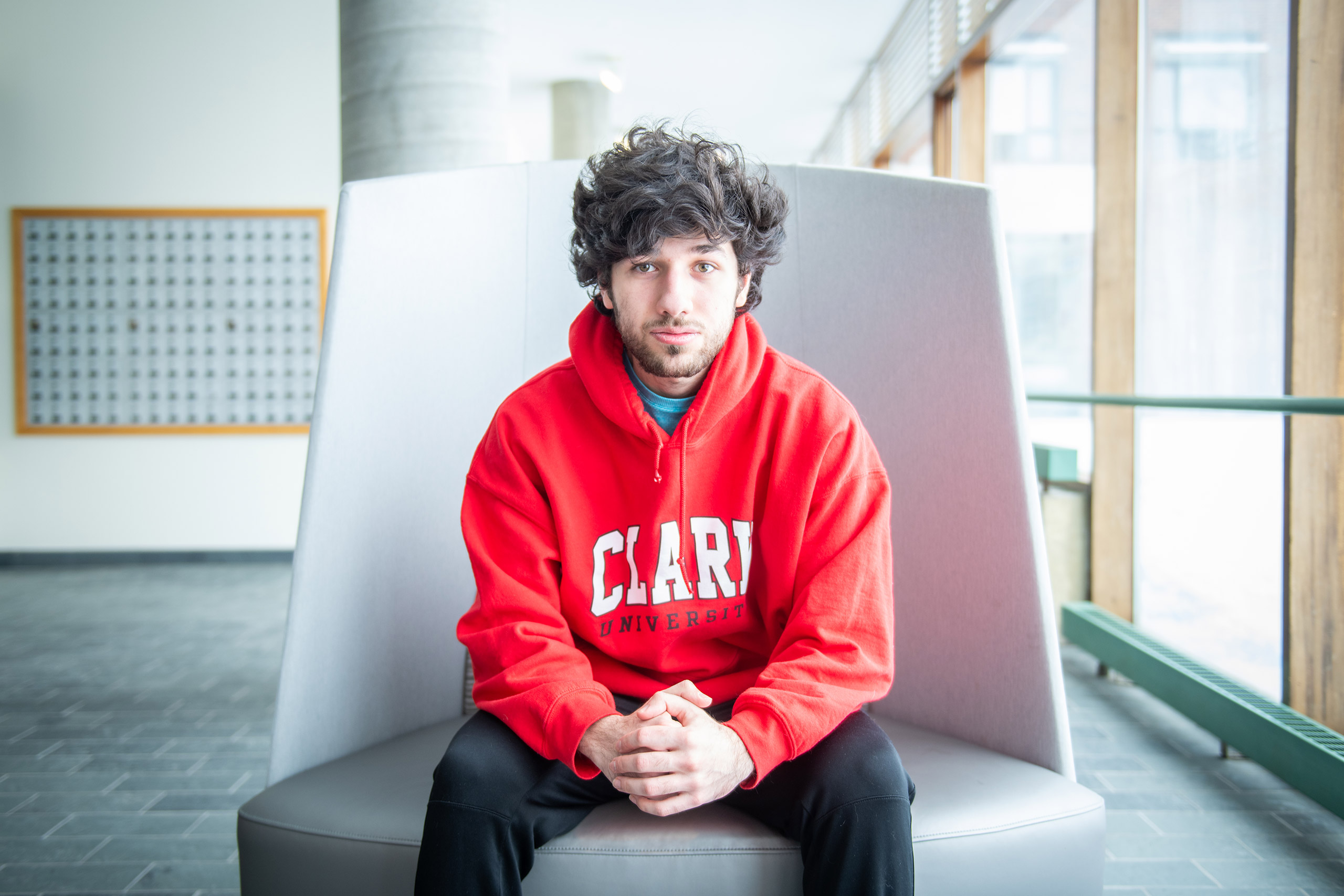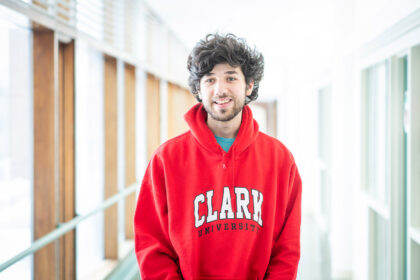All in a day’s play

Sajed Ziade ’26 suggests this as the best approach to understanding just what it takes to be a gamer at an elite level.
Here is how his typical day unfolds:
After awakening at about 11 a.m., the computer science major attends class and heads to the gym for a workout. He then settles at his computer to play the globally renowned video game League of Legends for about an hour and a half as a tune-up for a practice session with fellow members of FlyQuest, his League of Legends team. That session will consume seven hours.
And he isn’t done. Once his FlyQuest teammates scatter for the night, and after a quick break, Ziade will continue playing for another three to four hours to polish the skills he’ll employ in the high-stakes competitions pitting him against some of the best players from around the country. He’ll finally get to bed in the early morning hours. The cycle resumes at 11 a.m.

For Ziade, 12 to 14 hours immersed in the League of Legends universe is not only common — it’s a necessity. The best players can climb through the ranks, and the truly elite can shape lucrative careers from the game, but the work required to get there can be grueling, and the competition fearsome.
“I’ve been playing League of Legends for seven years, but not seriously until COVID hit,” he says. “After COVID, there was a big influx of talented 15- and 16-year-old players who had been playing for 10 to 14 hours a day during the shutdown.”
“I can’t keep the schedule I have without being healthy.”
League of Legends is a highly competitive, multiplayer online battle-arena video game that attracts millions of players and fans worldwide. The game matches two teams of five players, known as “champions,” who face off to destroy the other’s base. The LoL website challenges players to “make epic plays, secure kills, and take down towers as you battle your way to victory.”
“You work together against AI monsters, and you fight other players,” he says. “The key is to outsmart and get stronger than your opponents.” Ziade’s position is that of the AD Carry, who is expected to eliminate enemies with ease and exert maximum damage on the opposing team. The role requires tremendous reflexes along with a heightened ability to anticipate your enemy’s maneuvers, hence Ziade’s many hours of practice.
FlyQuest competes in the highly prestigious North American Champions League (NACL), which is closely affiliated with, and is regarded as the feeder league into, the League of Legends Championship Series (LCS), the top-tier professional league for the North American region. The LCS and NACL consist of eight and ten teams, respectively, with a total of 90 professional players competing at the highest level.

FlyQuest is considered the strongest Tier 2 team within the game’s organization. Ziade’s quick hands and high scores on a Tier 3 team earned him an invitation to try out for the team; he was flown out to Los Angeles for the tryout and earned his spot on the FlyQuest roster. Last week, his team began competing in an eight-week-long regular season that will be followed by four to five weeks of playoffs. The top four teams will then compete for the title in L.A.
Ziade, a Shrewsbury, Massachusetts, native, began playing video games like StarCraft and Dota 2 at a young age, inspired by his two older brothers who offered stiff competition. He recognizes that immersion in League of Legends and other competitive games can put one’s life out of balance, which is why he values his breaks and makes sure he exercises daily. “I can’t keep the schedule I have without being healthy,” he says.
His dream is to make League of Legends a career, which will require him to eventually advance to Tier 1 and even more supercharged competitions. Ziade’s family is supportive of his gaming, but also places great emphasis on his academics. In that regard, Ziade has chosen the appropriate major. Computer science has been described as “the backbone of the gaming industry,” providing the technical foundation for everything from the algorithms dictating gameplay to the graphic design that creates distinct worlds within the gaming cosmos.
“Creativity and problem-solving are the biggest things that computer science has helped me with in gaming,” Ziade says. “Just being able to see things from a more 3D perspective instead of just black and white really makes my gameplay more creative.”
He insists he can continue to meet the rigorous challenges of his Clark computer studies and keep his commitments to League of Legends training and events for the immediate future.
Competing with FlyQuest is challenging and exhausting, Ziade notes, because “everyone is insanely good.” He plans to be just as good by adhering to the life pattern he describes as “gaming, eating, sleeping, gaming.” And repeat.



